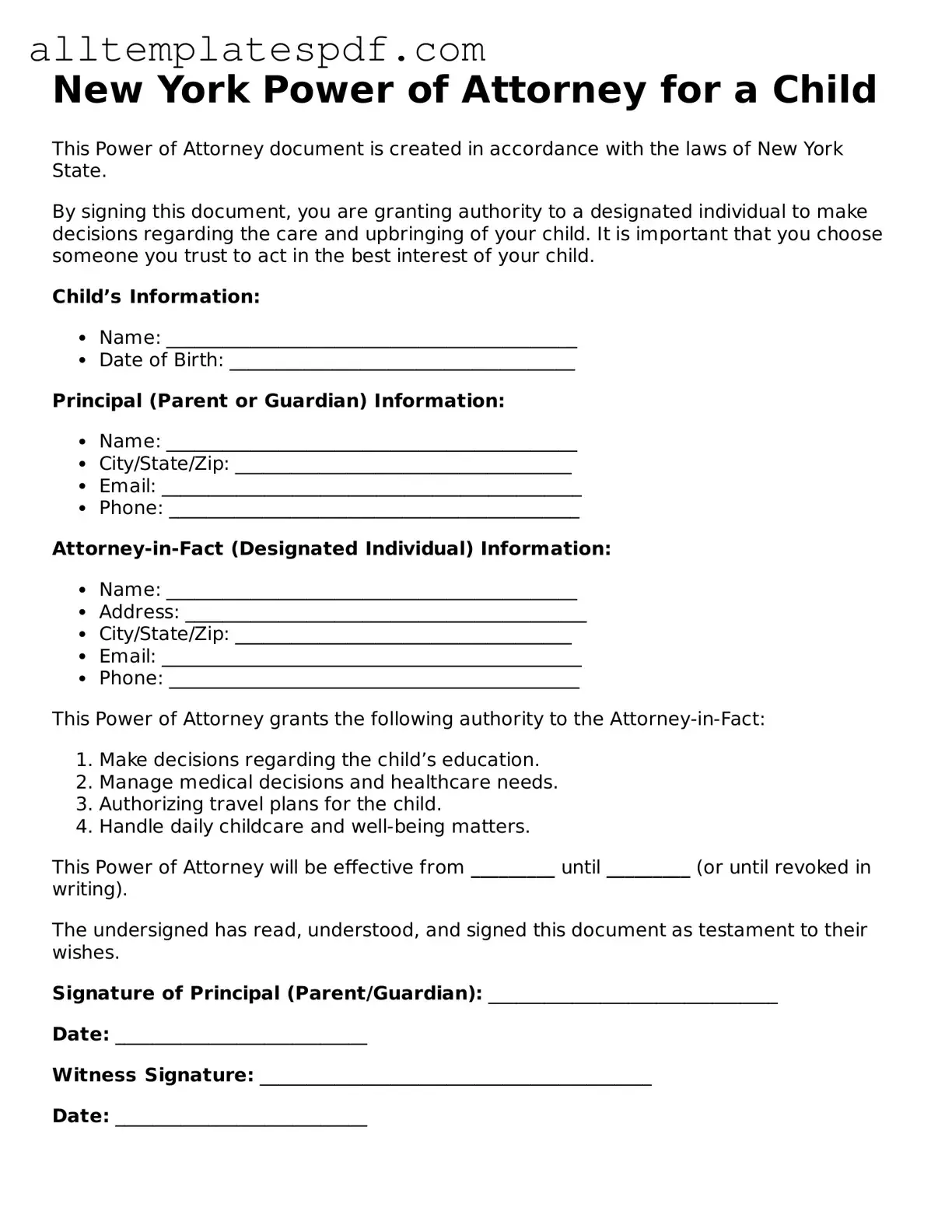Blank Power of Attorney for a Child Template for the State of New York
The New York Power of Attorney for a Child form is a legal document that allows a parent or guardian to grant authority to another adult to make decisions on behalf of their child. This form is particularly useful in situations where a parent may be unavailable, such as during travel or extended absences. By completing this form, you can ensure that your child's needs are met even when you are not present; click the button below to fill out the form.
Open Editor

Blank Power of Attorney for a Child Template for the State of New York
Open Editor
Fast and easy form completion
Complete Power of Attorney for a Child digitally — fast and easy.
Open Editor
or
↓ Power of Attorney for a Child PDF Form
